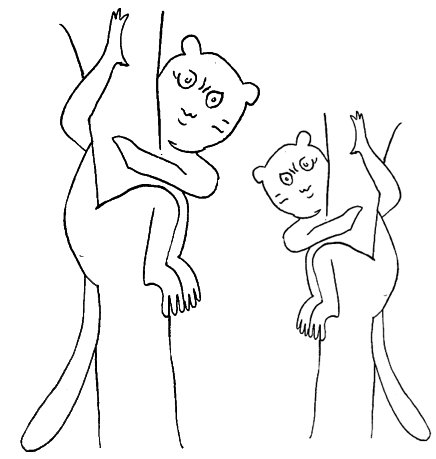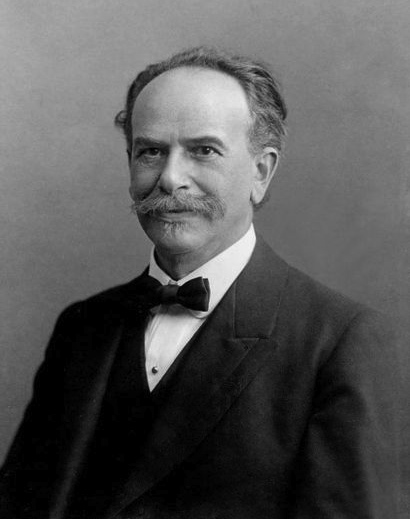


歴史個別主義
Historical particularism
☆歴史的個別主義(マービン・ハリスが1968年に提唱した概念)[1]は、アメリカ人類学の最初の学派と広く見なされている。
フランツ・ボアズとボアズ学派の人類学手法と密接に関連し、歴史的個別主義はボアス以前まで人類学を支配していた文化進化論モデルを否定した。各社会はその独自の歴史的過去を集団的に体現していると主張したのである。ボアズは並行進化論、すなわち全ての社会が同じ道を辿り、他の社会と同じ方法で特定の文化発展段階に達したという考えを否定した[2]。代わりに歴史的個別主義は、社会が異なる経路を通じて同じ文化発展段階に到達し得ることを示した。[2]
ボアズは、拡散、交易、対応する環境、歴史的偶然が類似した文化的特性を生み出す可能性を示唆した[2]。ボアズが提唱した文化的慣習を説明する三つの特性は、(1)環境条件、(2)心理的要因、(3)歴史的連関であり、中でも歴史が最も重要である(この学派の名前の由来)。[2]
歴史的個別主義の批判者は、この学説が世界中の文化に適用可能な
普遍的理論を構築しようとしない点で反理論的だと主張する。ボアズは十分なデータが収集されれば理論は自発的に生まれると信じていた。この人類学的思想学
派はアメリカ独自の最初の学派であり、ボアズ(その思想学派を含む)は間違いなくアメリカ史上最も影響力のある人類学的思想家であった。
| Historical
particularism (coined by Marvin Harris in 1968)[1] is widely considered
the first American anthropological school of thought. Closely associated with Franz Boas and the Boasian approach to anthropology, historical particularism rejected the cultural evolutionary model that had dominated anthropology until Boas. It argued that each society is a collective representation of its unique historical past. Boas rejected parallel evolutionism, the idea that all societies are on the same path and have reached their specific level of development the same way all other societies have.[2] Instead, historical particularism showed that societies could reach the same level of cultural development through different paths.[2] Boas suggested that diffusion, trade, corresponding environment, and historical accident may create similar cultural traits.[2] Three traits, as suggested by Boas, are used to explain cultural customs: environmental conditions, psychological factors, and historical connections, history being the most important (hence the school's name).[2] Critics of historical particularism argue that it is anti-theoretical because it doesn't seek to make universal theories, applicable to all the world's cultures. Boas believed that theories would arise spontaneously once enough data was collected. This school of anthropological thought was the first to be uniquely American and Boas (his school of thought included) was, arguably, the most influential anthropological thinker in American history. |
歴史的個別主義(マービン・ハリスが1968年に提唱した概念)[1]
は、アメリカ人類学の最初の学派と広く見なされている。 フランツ・ボアズとボアズ学派の人類学手法と密接に関連し、歴史的個別主義はボアス以前まで人類学を支配していた文化進化論モデルを否定した。各社会はそ の独自の歴史的過去を集団的に体現していると主張したのである。ボアズは並行進化論、すなわち全ての社会が同じ道を辿り、他の社会と同じ方法で特定の文化 発展段階に達したという考えを否定した[2]。代わりに歴史的個別主義は、社会が異なる経路を通じて同じ文化発展段階に到達し得ることを示した。[2] ボアズは、拡散、交易、対応する環境、歴史的偶然が類似した文化的特性を生み出す可能性を示唆した[2]。ボアズが提唱した文化的慣習を説明する三つの特 性は、環境条件、心理的要因、歴史的連関であり、中でも歴史が最も重要である(この学派の名前の由来)。[2] 歴史的個別主義の批判者は、この学説が世界中の文化に適用可能な普遍的理論を構築しようとしない点で反理論的だと主張する。ボアズは十分なデータが収集さ れれば理論は自発的に生まれると信じていた。この人類学的思想学派はアメリカ独自の最初の学派であり、ボアズ(その思想学派を含む)は間違いなくアメリカ 史上最も影響力のある人類学的思想家であった。 |
| 1.
Harris, Marvin: The Rise of Anthropological Theory: A History of
Theories of Culture. 1968. (Reissued 2001) New York: Thomas Y. Crowell
Company 2. Boas, Franz (December 1920). "The Methods of Ethnology". American Anthropologist. 22 (4): 311–321. doi:10.1525/aa.1920.22.4.02a00020. JSTOR 660328. |
1. ハリス、マーヴィン:『人類学理論の興隆:文化理論の歴史』1968年(2001年再版)ニューヨーク:トーマス・Y・クロウェル社 2. ボアズ、フランツ(1920年12月)『民族学の方法』アメリカ人類学者 22巻4号:311–321頁 doi:10.1525/aa.1920.22.4.02a00020. JSTOR 660328. |
| Calhoun,
Craig J., ed. (2002). "historical particularism". Dictionary of the
social sciences. Oxford University Press. p. 212. ISBN
978-0-19-512371-5. Card, Claudia (1996). The unnatural lottery: character and moral luck. Temple University Press. p. 10. ISBN 978-1-56639-453-6. Darnell, Regna (2001). Invisible genealogies: a history of Americanist anthropology. University of Nebraska Press. p. 34. ISBN 978-0-8032-6629-2. Sanderson, Stephen K. (1997). "Historical particularism". In Barfield, Thomas (ed.). The dictionary of anthropology. Wiley-Blackwell. p. 237. ISBN 978-1-57718-057-9. |
カルフーン、クレイグ・J. 編(2002).「歴史的個別主義」.『社会科学辞典』.オックスフォード大学出版局.212頁.ISBN 978-0-19-512371-5. カード、クローディア(1996)。『不自然なくじ引き:性格と道徳的幸運』。テンプル大学出版局。10頁。ISBN 978-1-56639-453-6。 ダーネル、レグナ(2001)。『見えない系譜:アメリカ主義人類学の歴史』。ネブラスカ大学出版局。34頁。ISBN 978-0-8032-6629-2。 サンダーソン、スティーブン・K.(1997)。「歴史的個別主義」。バーフィールド、トーマス(編)。『人類学辞典』。ワイリー・ブラックウェル。p. 237。ISBN 978-1-57718-057-9。 |
| https://en.wikipedia.org/wiki/Historical_particularism |
|
リ ンク
文 献
そ の他の情報
CC
Copyleft,
CC, Mitzub'ixi Quq Chi'j, 1996-2099